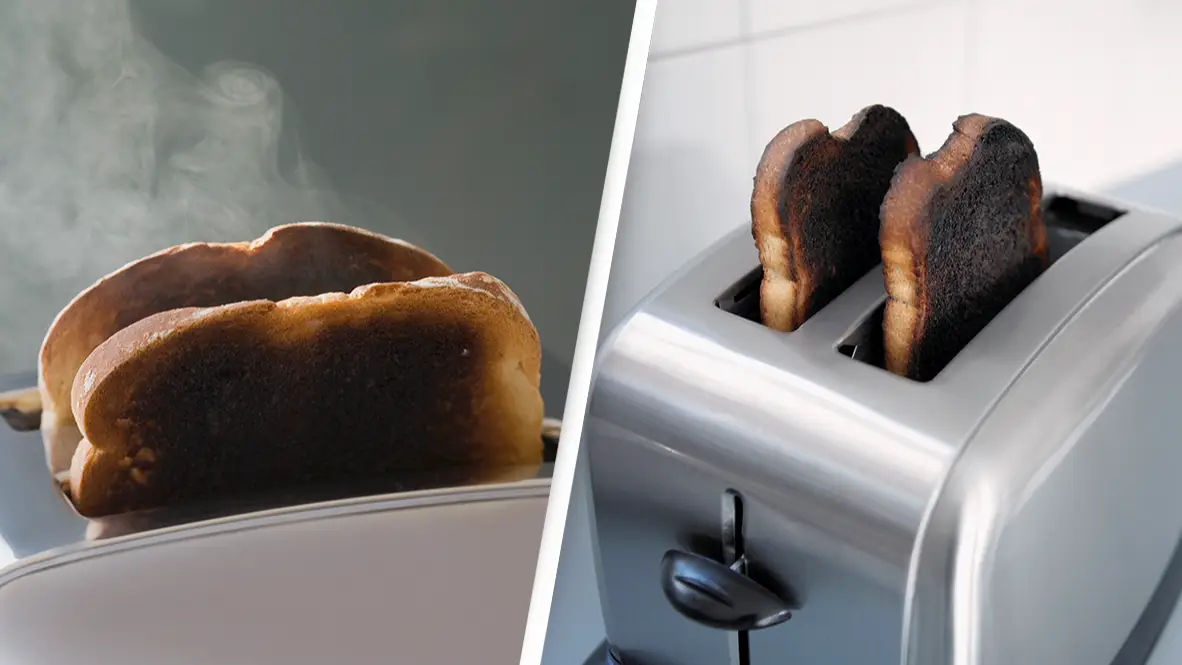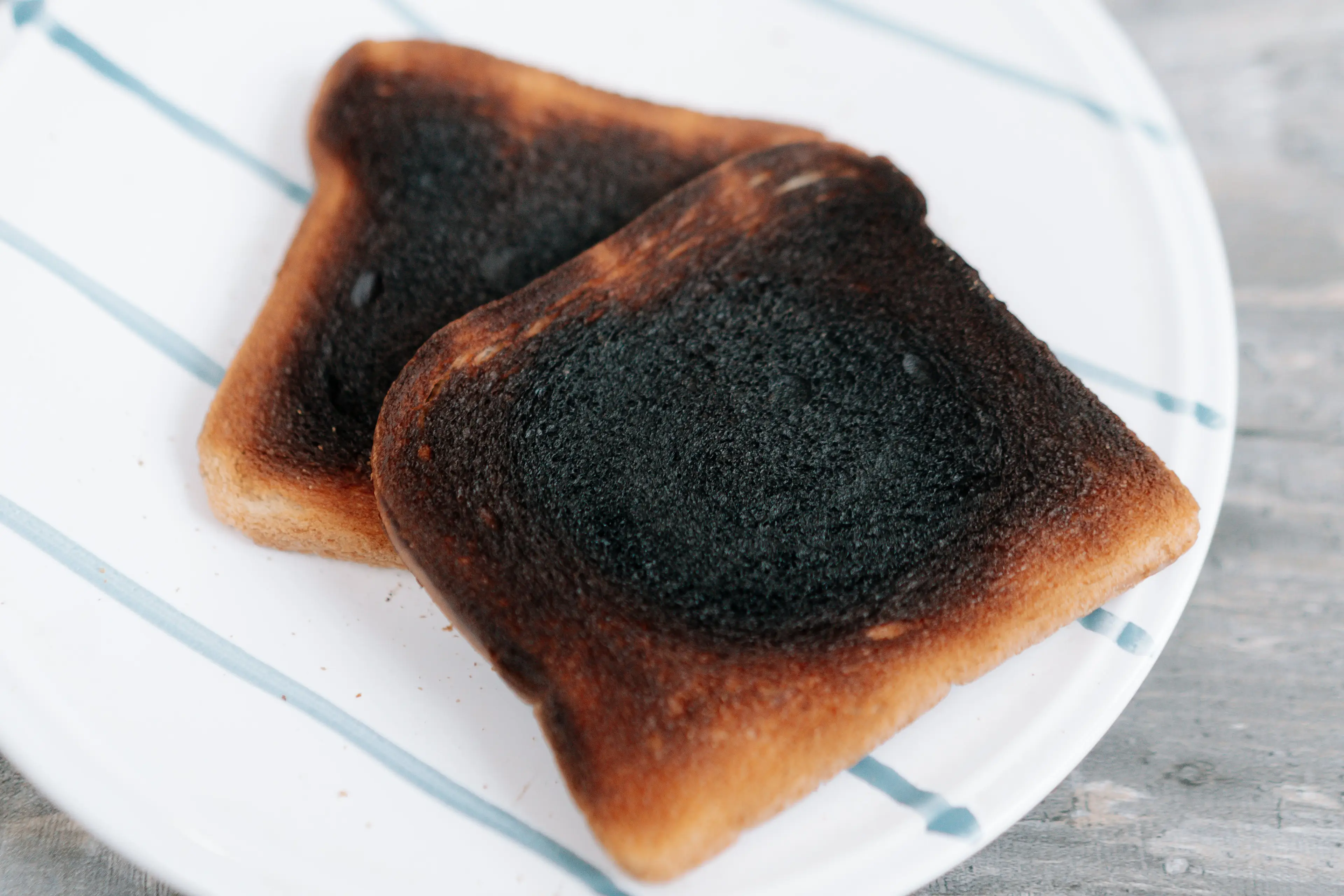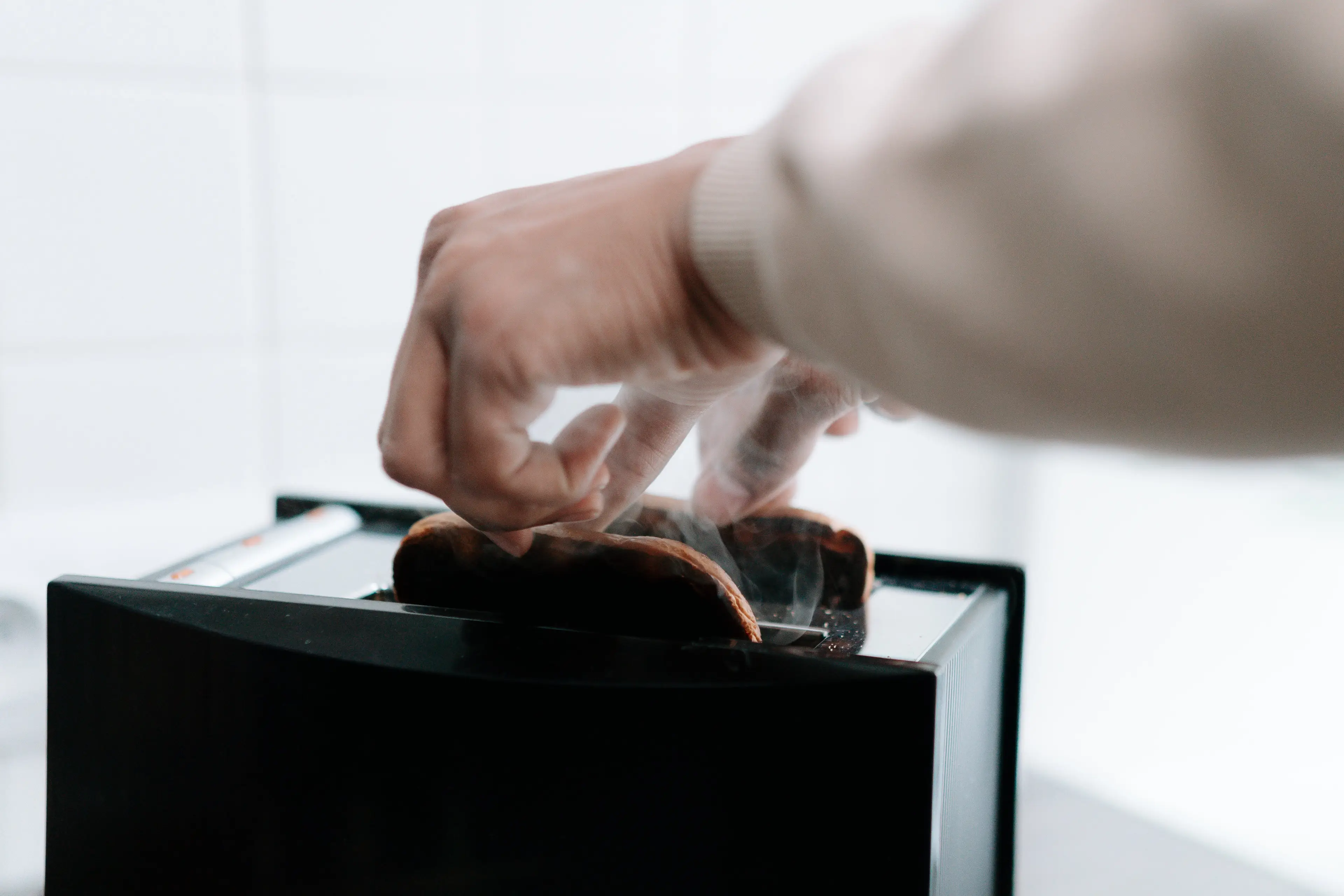
While it would be a pretty silly move when it comes to most foods, a lot of people prefer having their toast burnt.
To be honest, I don't personally see the appeal of making my toast look like a piece of charcoal, but there is no questioning a lot of people enjoy it.
But while many enjoy some burnt toast first thing in the morning or as a bit of supper before bedtime, experts have warned of the dangers of doing so.
You're probably thinking, 'how on earth can toast put me in danger', well its all thanks to the Maillard reaction, something that takes place at heats of around 120°C (248°F).
Advert

Essentially, you can thank the Maillard reaction for the wonderful tastiness that comes from most cooked dinners.
"In the process, hundreds of different flavor compounds are created," Science of Cooking explains.
"These compounds in turn break down to form yet more new flavor compounds, and so on. Each type of food has a very distinctive set of flavor compounds that are formed during the Maillard reaction."
The problem with this reaction comes from an amino acid known as asparagine, which is present in the likes of potatoes, bread, cereals, cookies, and coffee.
In a study done by scientists in Sweden back in 2002, it was discovered that the Maillard reaction takes asparagine and produces a substance known as acrylamide.
Well, this substance, which is formed when we burn toast, is labeled as 'very toxic' according to CAMEO Chemicals.
Basically, acrylamide is not very good for us, causing potential damages to our nervous system, and long-term exposure to it can even increase the risk of someone developing dementia.
Federica Laguzzi, assistant professor of cardiovascular and nutritional epidemiology at the Institute of Environmental Medicine at Karolinska Institutet in Sweden, told BBC Future: "Acrylamide passes through all tissue, including the placenta, because it has a low molecular weight and is soluble in water."

Then there comes the cancer risk, with high levels of acrylamide proven to increase an animal's chances of developing the disease.
Measuring that risk on humans is a different story, as Rashmi Sinha, a senior investigator at the National Cancer Institute, told Inverse: "To really be able to be to say that this causes cancer you need to do clinical trials. But you can’t do clinical trials with things that are possible carcinogens."
"The main studies have been association [or] prospective studies. We ask questions about how [healthy participants] cook their foods and then we follow them up for ten, fifteen, twenty-years."
Nonetheless, it may be best to lay off the burnt toast.
Topics: Food and Drink, Health, Weird, Science
